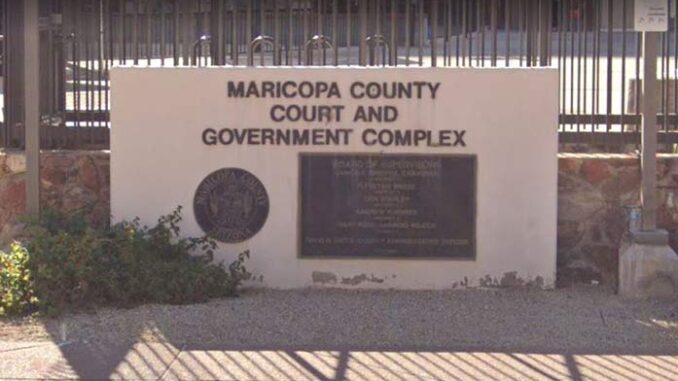
An attorney with the Phoenix law firm of Ballard Spahr will not stand trial for defamation because the subject of the contested comments waited about six weeks too long to file a lawsuit, the Arizona Court of Appeals ruled Thursday.
Jeffrey Peterson sued Dennis K. Burke for defamation in Maricopa County Superior Court in May 2020 based on allegations contained in an April 2019 securities fraud complaint filed by a group of investors against Peterson and others. The Investors’ Complaint was amended in May 2020.
Court records show Burke was identified in both complaints as the source of the investors’ misconduct allegations against Peterson.
Burke is a former member of the Arizona Attorney General’s Office who went on to serve as the U.S. Attorney for the District of Arizona from 2009 to 2011. He was later reprimanded by the State Bar of Arizona for three incidents of misconduct during his tenure.
Under Arizona law, a defamation claim must be brought within one year from publication of the alleged defamatory statement. Court records show Burke moved to dismiss Peterson’s lawsuit, arguing that any claim was barred by the statute of limitations because records showed Burke made the disputed statements in 2017.
In response, Peterson argued Burke also made additional defamatory statements in May 2019, making Peterson’s May 2020 lawsuit timely. However, a superior court judge dismissed the case, agreed with Burke that Peterson missed the one-year window because the alleged defamatory statements first appeared in the April 2019 Investors’ Complaint.
Presiding Judge Jennifer Campbell wrote in the unanimous appellate decision that Peterson “was required to file his defamation claim against Burke no later than April 2020. Because Peterson filed his complaint in May 2020, his claim is barred by the statute of limitations and no amendment could cure that defect.”
Even though Burke got the case dismissed, he was unable to convince the court of appeals to award attorney’s fees for defending a claim he argued was filed “without substantial justification.”
“We disagree and decline to enter such an award,” Campbell wrote. Burke was, however, awarded a few hundred dollars to cover the filing fee he had to pay the court to respond to Peterson’s appeal.
Peterson was represented on appeal by former Arizona Attorney General Tom Horne, while Burke received representation from attorneys at Ballard Spahr.
Public records obtained from the State Bar of Arizona show Burke consented to a reprimand in 2014 for misconduct involving two incidents of revealing confidential information to the media and one incident of providing misleading information to his supervisor.
At the time of the misconduct, Burke was the U.S. Attorney for the District of Arizona and in that capacity he was involved with the Bureau of Alcohol, Tobacco, Firearms and Explosives (ATF) operation known as Fast and Furious which was connected to the shooting death of a U.S. Border Patrol agent in late 2010.
In June 2011, a Congressional report about Fast and Furious was unofficially released through his office to several media outlets, including the New York Times. Burke was aware he was not authorized under the circumstances to make media disclosure decisions on that particular matter.
A short time later, Burke was involved in the unauthorized release of another memo to the media through his personal email accounts.
Burke previously served as chief of staff for Gov. Janet Napolitano and followed her to the U.S. Department of Homeland Security. He focuses his practice with Ballard Spahr on white collar crime, internal investigations, commercial litigation, and government relations, according to the company’s website.
